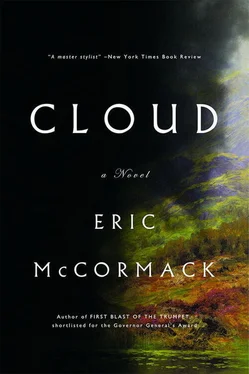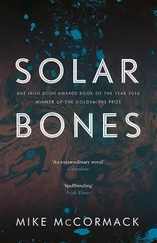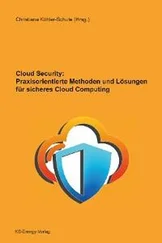BACK UP IN MY ROOM I dialed the number and got Sarah Mackay’s secretary.
“Miss Mackay’s gone for the day,” she said quite brusquely.
I explained that I was a visitor from Canada who used to know her parents. I was hoping to meet her and talk to her about them.
The receptionist became much more pleasant.
“I’m sure she’d love to talk to you, but I’m not allowed to give anyone her home number,” she said. “I’m afraid you’ll have to try phoning her here in the morning and see if you can meet her. Unless … let me have a look.” Papers rustled. “Oh yes, according to her schedule she is free between ten and noon tomorrow. I’m not supposed to do this, but I could always book you in for that, if you want?”
I did want.
“Good. I’ll make a note you asked to see her about a personal matter.” She made me spell out my name for her.
“All right, Mr. Steen,” she said. “I’ll leave her a message that she can expect you around ten tomorrow.”
The next morning, it was barely daylight when I checked out of the Bracken Inn. I had to drive very carefully: not only was the road slippery from a thin layer of fresh snow, but a winter fog made vision difficult.
As I passed the graveyard on the edge of town, thicker wisps of fog seemed to sway from the tops of the tombstones, especially those at the back where Miriam lay, as if she and all the dead of Duncairn were waving goodbye to me. A solitary raven was perched on the horn of one of the gargoyles at the graveyard entrance. Both raven and gargoyle were glaring at me with mad eyes.
The driving was slow for about ten miles, then the fog cleared sufficiently for me to go at a more or less normal speed for the next couple of hours. Near ten o’clock I at last saw the sign, Eildon House E.R.C. , and began to make my way along a tree-lined road leading past acres of lawn and a half-frozen pond of green slime. Through the gaps in the trees, I caught glimpses of a huge mansion with arches, buttressed walls, pillars, and innumerable windows of the Gothic and Palladian sort: this must be the house itself.
I found a parking lot and from there walked to the front door. A set of stone steps bevelled with use led up to a portico supported by thick columns. The portico floor was of worn flagstone and the door itself was massive. When I twisted the ornate knob of the doorbell I could hear only the faintest of clangs from the inside.
After a moment, a man in a dark blue uniform with a guard’s insignia over the breast pocket opened the door. He checked for my name on a clipboard he was holding then let me into a high, gloomy lobby. He shut the door behind us and directed me to a corridor leading to the west side of the building: there, I’d find a waiting area.
My footsteps echoed as I walked along the wood floor. The smell of fresh polish was so strong it would disguise, if need be, anything less pleasant.
Around a corner, I arrived at the waiting area. The atmosphere was like that of another era, with dark wainscoting and murky oil paintings of unsmiling men with Victorian pork-chop whiskers looking down from on high. Several wooden upright chairs surrounded a low table. A small, barred window of bottle glass was embedded in the three-feet-thick wall, and through it I could see some huge flies gathered on the outside sill. I was relieved to find they were only distorted sparrows, which flew away when they saw my equally distorted figure through the glass.
From the elaborately moulded ceiling, a cord dangled with a single, unshaded electric bulb. The light it cast was so feeble it would have been difficult to read by — though, in fact, no reading material was lying around, not even out-of-date magazines. I sat on one of the wooden chairs — it wasn’t made for sitting in long.
In fact, the entire waiting room didn’t encourage waiting.
ALL WAS SILENT for a minute or two — then I heard the echo of brisk footsteps and a young woman came round the corner. She too wore an official uniform, but it was of a greenish colour with the word Director on her badge. She came right to me.
“Mr. Steen?” she said in a pleasant, friendly voice. “I’m Sarah Mackay … Miriam’s daughter.” She shook my hand.
I could hardly speak. Close up, she was so like Miriam in the photograph I’d removed yesterday from the house in Duncairn, I felt transported back in time. The blue eyes had the same honest quality as her mother’s when they’d first scrutinized me over the edge of that rock on the moorlands all those years ago.
“I was delighted to hear you were coming,” said Sarah Mackay. “I almost feel I know you, my mother spoke your name so often. She always wondered how life had worked out for you. I know she’d have loved to see you again.”
To hear that I hadn’t been forgotten by Miriam touched me deeply. I couldn’t think of anything to say.
“Let’s go to my office,” said Sarah Mackay, glancing round the waiting area with its grim furnishings. “At least it’s a little more comfortable than this.”
I followed Sarah Mackay along a maze of corridors, deep into Eildon House.
As we walked, she explained that the place had originally been the residence of Andrew Eildon, one of those nineteenth-century industrial barons. He’d spent much of his fortune on this house, acting as his own architect. Newspapers in his day had called it “Eildon’s Folly.” By the early years of the twentieth century, none of his descendants could afford the upkeep.
“Ultimately, the government took it over and converted it to its present use,” she said.
I guessed its “present use” must be as a place of confinement of some sort. The intersections of many of the corridors had checkpoints manned by uniformed guards with pistols in their belts. They nodded respectfully to Sarah Mackay as we passed.
I was curious about the letters E.R.C . I’d seen on the Eildon House highway sign.
“It means ‘Enforced Residential Community,’” she said. “For most people in this country, that’s a polite designation for ‘prison.’ Though only about half of our inmates have actually done anything criminal. Anyway, we think of them all as patients, not prisoners.”
By now we’d turned so many corners and walked along so many lookalike corridors that I was rather lost. I remarked that the place was like a rabbit warren.
“Quite so,” she said. “This labyrinthine design seems to put the inmates more at ease. They don’t feel regimented or spied on. That’s quite different from the more orthodox prisons. If you’ve ever seen any photographs of them, you’ll have noticed they look like a big wheel, with its spokes containing rows of cells and its central hub for observing the inmates at all times.”
I thought back, too, to Dupont’s reconstituted military camp, with its razor-wire-topped fence making it look like a prison camp. I told Sarah Mackay about my visit there. I wondered whether, no matter what the design of these places of confinement, the workers in them came to feel as though they were prisoners, too.
“There’s a good deal of truth to that,” she said. “Here in Eildon House, in the case of guards and other service workers, their salaries have to be high enough to keep them from looking for work elsewhere.” She frowned. “But as for those of us who’re professionals, we don’t mind spending the better part of our lives in places like these. It’s our calling — our vocation, you might say — and we’d do it for no money at all. Indeed, we’re sometimes accused of being attracted to those with afflictions of the mind by a kind of sympathetic hypochondria. Some of our critics even say that our sensitivity to the sufferings of others is a mental illness in itself.”
Читать дальше











